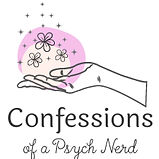Setting Boundaries with your Kids - a Workshop by Dorene Joseph
- Lugbelkis Wernet
- Sep 21, 2023
- 4 min read
Updated: Oct 7, 2023
Parenting doesn't come with a user manual, and nowadays, with the business of everyday life, we might sometimes ask ourselves: am I a good enough parent? As a mom of three, I find myself asking this question often.
The good news is that the fact that you are even worried about this indicates that you are, in fact, a good enough parent. I recently saw this ad on Instagram about a parenting workshop that deals with setting boundaries and having a balance with our kids. Since I am in my villain era (a.k.a. learning how to set boundaries 🙃), I decided it would not hurt to have better skills when setting boundaries with my kids.

During this workshop given by Dorene Joseph (trauma-informed mental wellness coach) of Belleâme, I had some interesting takeaways that I wanted to share with you:
1. The Three Brain States
When it comes to how we respond to situations in life, our responses depends on which part of the brain is activated. It's worth noting that this applies to both adults and children.
Executive state: This is where it's possible to think logically and make solution-focused decisions. This is where learning happens. You feel safe, and the part of your brain meant to help you solve problems logically is active.
Emotional state: In this state, you start experiencing heightened emotions and might be more likely to make decisions based on emotions instead of logic. You are still mobile but your fight or flight state is activated.
Children can exhibit an emotional state by hitting or biting, while adults can do this with screaming or aggression.
Survival state: In this state, a person does not feel safe. You're likely to be immobile, isolate, and not want to deal with people.
Dorene presented some slides that give helpful tips on what your kids need during these three states. I took a picture of each slide with my phone, so the quality might not be the best.




2. Triggers as opportunities to grow Triggers are things or situations that make you feel strong emotions, often because they remind you of past experiences or beliefs. Many times when we get triggered, we are not just reacting to the present moment, but it can be so that we are reliving in a way the first time we felt this way (oftentimes as children). When we have kids, sometimes our kids can push our buttons and trigger us, but it can be helpful to see these triggers as opportunities to grow, to learn something about yourself, and, with this, learn how to be better able to handle similar situations in the future. During the workshop, Dorene asked us to imagine the last time we felt triggered, what exactly did we feel, and think of the first time we felt this. How old were we? Visualize that little girl or boy in front of you and tell him or her what they needed to hear at that time. I found this to be a helpful inner child healing exercise that can help you learn about yourself better and more about your (unmet) needs as a kid that might be affecting you today. 3. When in Survival State: do not punish! The best time to explain a consequence for the behavior of a child is when you and your child are in the executive state of the brain; this state facilitates learning and they are more likely to understand why they were given a consequence for their behavior (for example time-outs, with the number of minutes your child has the sit in timeout being their age).
Consequences can be enforced when in an emotional state but the explaining should happen when in an executive state.
When in emotional survival state, it is very easy to make decisions or say things that we might later regret, and it can be hard for the child to be able to learn from what happened.
4. Consistency
Consistency in parenting means sticking to a set of rules and expectations consistently so children understand what is acceptable behavior and what is not. When parents are consistent with consequences, they follow through with appropriate outcomes for actions, helping children learn about responsibility and accountability.
For example, if a child breaks a rule, a consistent consequence might be a time-out or loss of a privilege. This predictability helps the child to understand the connection between their behavior and the consequence of this, and with this, helps the child feel a sense of structure and understanding of boundaries.
5. Coregulation
Throughout the whole presentation, I was asking myself: but what about when you tend to get in an emotional or survival state very easily when the children misbehave? And Dorene did a wonderful job of including this scenario in her workshop by mentioning coregulation.
Coregulation is having someone there to help you manage your emotions and stay balanced. Basically grounding together. If both you and your child are in an emotional or survival state, you could hug them or breathe together so that you both can reach a more grounded state of mind before talking about what happened.



Parenting is not easy; it really does take a village, not just with the practical stuff but also with sharing knowledge that helps make our parenting journey a bit easier. And Dorene is doing a great job at this! Setting boundaries with your kids can require a lot of time, energy, and consistency, but it will definitely make a difference in the long run, benefitting you and your child.
Boundaries are the space where I can love me and you simultaneously.




Comments